Buffers
Buffers: Types and Weights Buffers are key components that influence the feel of recoil and the durability of MWS replicas. They come in different materials and weights, each offering unique characteristics in terms of shooting feel and resistance to the use of powerful gases.
Standard Buffer: Made of plastic and with a lightweight of approximately 35g, this buffer may not withstand prolonged use of very powerful gases, being susceptible to damage.
Aluminum Buffers: Weighing around 70g, they provide good durability without sacrificing too much gas efficiency, offering a moderate recoil feel.
Steel Buffers: Weigh about 200g and are ideal for players looking to maximize the recoil feel. Their additional weight enhances the shooting experience at the cost of a higher demand for gas.
Adjustable Weight Buffer (T8): This type of buffer allows for precise weight adjustment, facilitating the customization of the recoil feel according to the user's preferences.
Explore buffer options here: Buffers for GBBR at Skirmshop.
Buffer Springs: Ratech vs. Angrygun The buffer spring, working in conjunction with the buffer, is crucial for the correct functioning of the firing cycle. Its tension affects the speed at which the bolt returns to its initial position, impacting both the rate of fire and the feel of recoil.
Ratech Springs: Are rated in tensions of 160%, 220%, and 330%, adapting to different conditions and play preferences. The 330% spring may be too stiff for cold conditions.
Angrygun Springs: Their options include 110% and 130%. The 130% is comparable to Ratech's 220% in terms of tension, while the 110% is similar to Ratech's 160%.
For more information about buffer springs, visit: Buffer Springs for GBBR at Skirmshop.
Reducing Buffer Spring Noise For those looking to mitigate the noise generated by the buffer spring between shots, two practical solutions are recommended:
Using a Retractable Spring: Adding a couple of turns of retractable can help reduce direct contact and the resulting noise between springs.
Greasing the Spring: Applying dense silicone grease, similar to that used on bicycles, on the buffer spring can reduce noise by smoothing the interaction between mechanical components.














 SALES
SALES
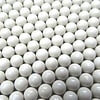 Consumables
Consumables
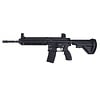 Assault Rifle
Assault Rifle
 Pistol
Pistol
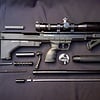 Sniper
Sniper
 Stealth Section & Clothing
Stealth Section & Clothing
 Accessories
Accessories
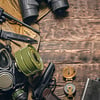 Tactical Equipment
Tactical Equipment
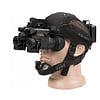 NVG & Thermal
NVG & Thermal
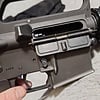 MWS Guide
MWS Guide